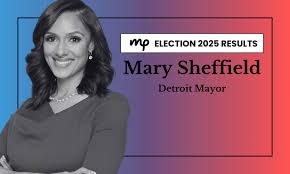
Introduction
Mary Sheffield, the youngest woman ever elected to the Detroit City Council, has been making waves in local politics since her election in 2013. Known for her dedication to community development and social justice, Sheffield’s initiatives have gained significant attention, particularly in a time when urban neighborhoods face numerous challenges. Her work emphasizes equity, community involvement, and sustainable development, making her a key figure in Detroit’s revitalization efforts.
Main Focus of Initiatives
Sheffield’s recent initiatives include projects aimed at enhancing public safety, improving the quality of life for residents, and addressing longstanding issues such as poverty and unemployment in Detroit. One notable project is her focus on developing green spaces within neighborhoods to promote environmental sustainability and encourage community engagement. By turning vacant lots into parks, Sheffield aims to create safer, more enjoyable spaces for families and children.
Additionally, her office has been instrumental in facilitating job training programs that connect residents with local businesses, reducing unemployment rates in the city. By partnering with vocational training organizations, these programs aim to provide the necessary skills for individuals, ensuring they are job-ready. This approach not only assists in improving personal circumstances but also fosters economic growth within the community.
The Importance of Community Engagement
Sheffield firmly believes that community input is essential to the success of any initiative. She has implemented several town hall meetings and workshops where residents can voice their concerns and ideas, promoting an inclusive dialogue between the public and city officials. This grassroots approach has fostered a sense of ownership among residents, empowering them to take an active role in shaping their city’s future.
Conclusion
Mary Sheffield’s efforts in Detroit epitomize the critical intersection of community advocacy and urban policy. Her initiatives not only address immediate concerns but also lay the groundwork for a more equitable and sustainable future for Detroit’s neighborhoods. As Sheffield continues to push for reform and community involvement, her work serves as a potent reminder to both city leaders and residents that collective action is vital for creating lasting change. The initiatives she champions signal hope and resilience in a city actively working towards revitalization and improvement, illustrating the power of community-driven development.



